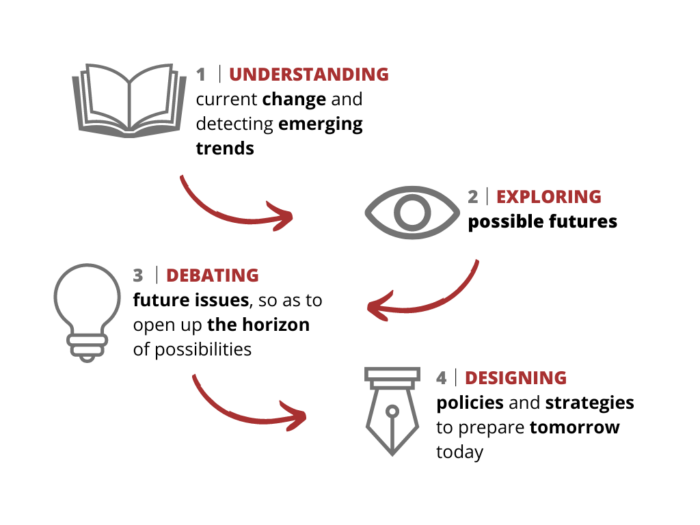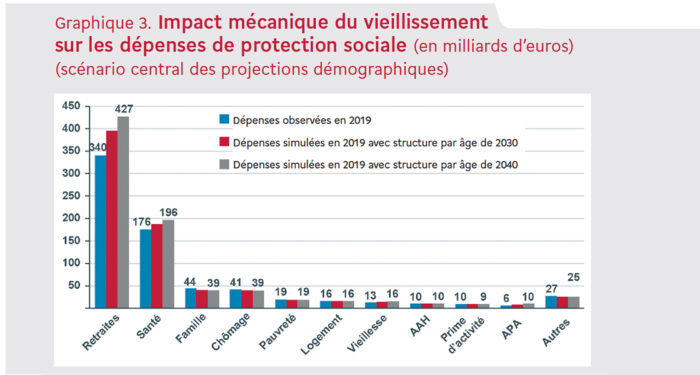France, like the other industrialized countries, confronts a rapid aging of its population and a consequent danger to the stability of its retirement system, given the principle of equalization between basic and complementary plans. The French Prime Minister asked the Commissaire au plan to explore the challenge and the possible avenues for addressing it. One of the main recommendations, in line with the Reform of 1993, is the extension of working life. This would obviously avoid an excessive degradation of the ratio between the years of contributions and those of receiving benefits.
Jacques Bichot offers a contrast between two systems: the one based on annual payment systems found in basic retirement plans, and the systems of bridging offered by complementary plans. He shows that the former, being excessively complex, rigid and unfair, should be replaced by a point system which, everything considered, is more equitable, transparent and easier to manage.
He bases his thesis on the fact that the return on contributions is unequal among ranks and that those who have been unable to have a complete career (such as women, immigrants and occasional workers) are penalized. This, he shows, has been built into a deeply opaque system of injustice and of unfair bureaucratic practices which is overruling the fundamental principles of a contributory logic.
Jacques Bichot makes a plea for a reform – towards a point system -which will eradicate the injustices of the present system, make it more adaptable to new needs and more manageable. He shows, finally, how to implement a transition between the two systems by borrowing some useful principles recently adopted by the Association générale de retraites des cadres and l’Association des régimes de retraites complémentaires (Associations of retired managers and of complementary retirements systems).
Retraites : à quand la fin des annuités ?
Cet article fait partie de la revue Futuribles n° 241, avr. 1999


